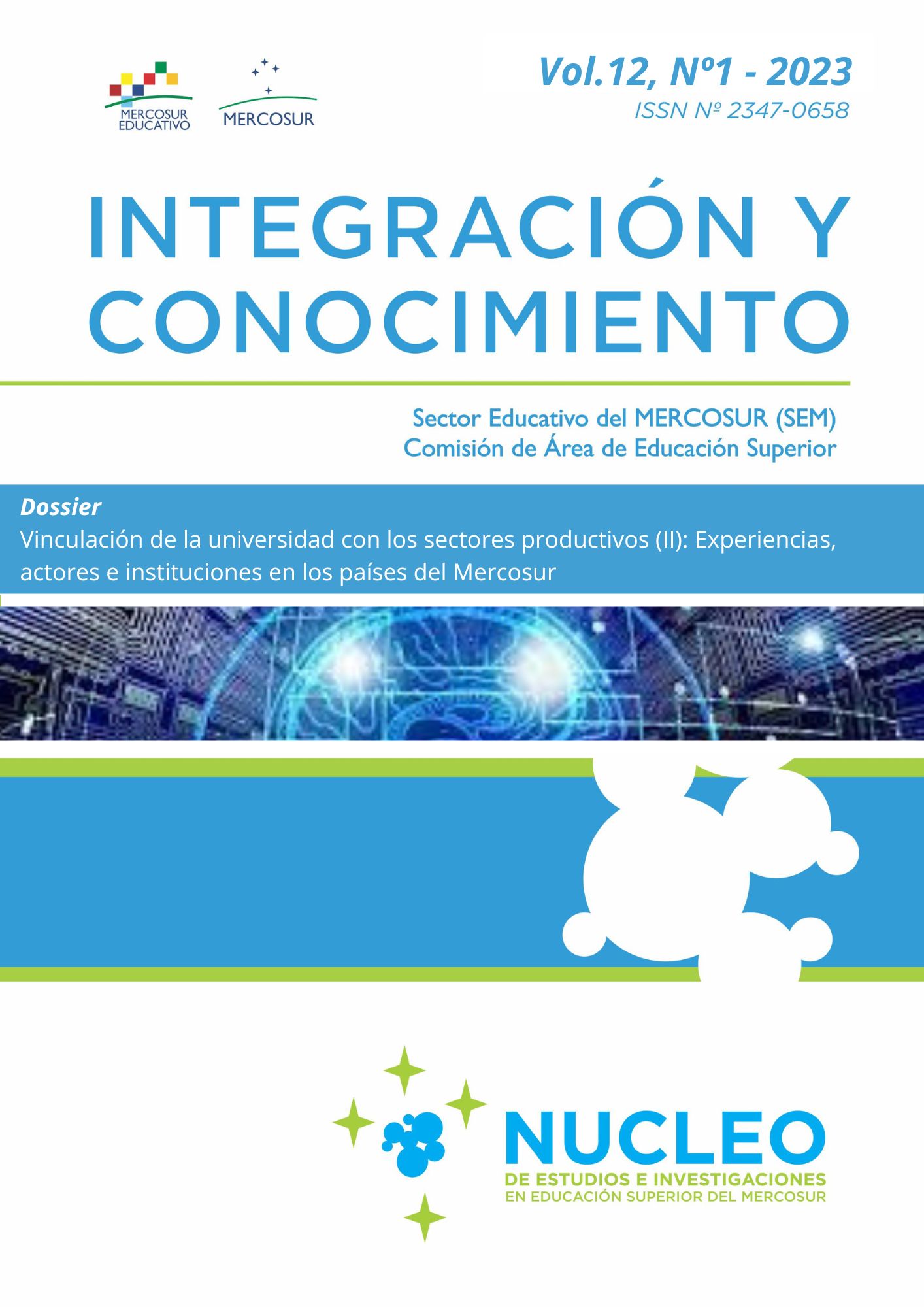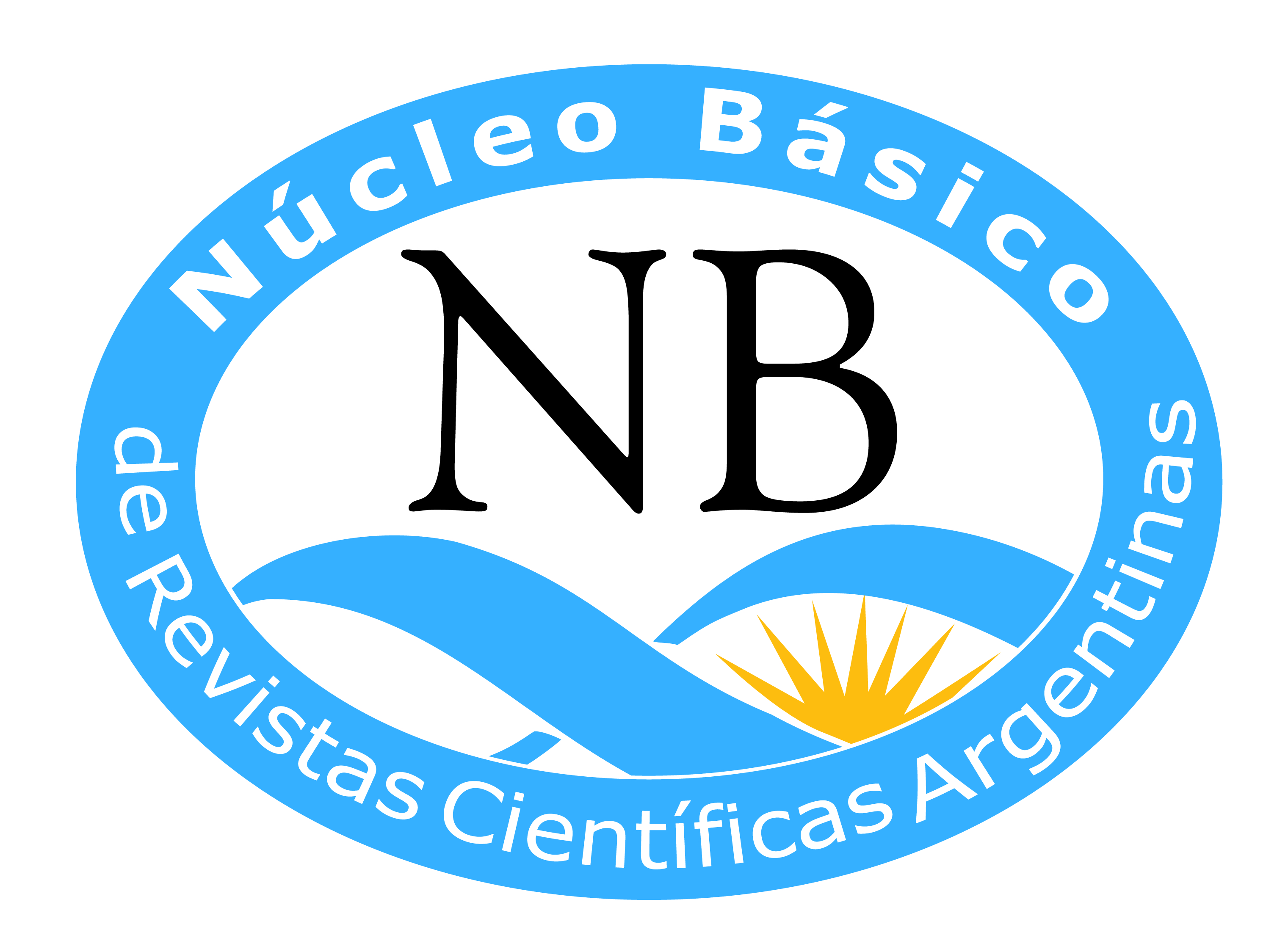Science-Technology Parks (STP) as instruments to promote academy- productive sector linkages and foster local development: The case of the STP of Pando, Uruguay.
DOI:
https://doi.org/10.61203/2347-0658.v12.n1.40077Keywords:
Scientific-technological parks. Articulation academy-productive sector. Third mission of the university.Abstract
Science-Technology Parks promote and manage technology and knowledge transfer processes between universities or R&D centers, companies and markets. Its main purpose is the promotion of innovation and competitiveness of the companies and institutions that are associated with it or created in its environment. The academy is a strategic actor in these infrastructures, where it develops its third mission articulating with business and government representatives in their governance. This paper analyzes the case of the Pando Science and Technology Park (PCTP) promoted by the Faculty of Chemistry of the University of the Republic of Uruguay (UDELAR). The results show that only the impact of the income generated by 10 of the R&D projects carried out between academia and industry, compensated in one year the investment made by the University since the creation of its technological pole 20 years ago and doubled the investments made by the Executive Branch in subsidies for the consolidation of this ecosystem for a decade (2012-2021). Likewise, the incubation process for new technology-based companies developed by Khem, the first university incubator for scientific-technological ventures in Uruguay, which integrates the PCTP ecosystem, is evaluated as highly successful. Many of the companies graduated from Khem stood out in the development of new technologies, products and services for the health, food and agro-industrial sectors, which obtained important awards and recognition at a national and international level.
Downloads
References
Adán, C. (2012). El ABC de los Parques Científico. Seminarios de la Fundación Española de Reumatología, 13, (3), 85-94, Recuperado de https://www.sciencedirect.com/science/article/pii/S1577356612000267
Amestoy, F., Cassin E., Monasterio, L. (2021). Latin American Science and Technology Parks and Areas of Innovation. Development strategies, regional impacts, challenges, and opportunities in the new post-Covid-19 global economy. Pub. International Association of Science Parks and Areas of Innovation (IASP) Málaga, Spain.39 p.
Ansell, C., Alison Gash. (2008). Collaborative governance in theory and practice, J. Public Adm. Res. Theory 18 (4) 543–571. https://academic.oup.com/jpart/ article/18/4/543/1090370?login=true
Audy, J. (2017). A inovação, o desenvolvimento e o papel da Universidade. Estudos Avançados, 31(90), 75-87.
Cárdenas, L. (2004). El Concepto de Universidad. Origen y Evolución. Venezuela: Ediciones del Rectorado. Universidad de Los Andes.
Carrer, C., Da Costa, G.A., Plonski, C. R., Orlandelli Carrer; y C.E Lins de Oliveira (2010). Innovation and entrepreneurship in scientific research, R. Bras. Zootec., v.39, 17-25 (supl. especial).
Etzkowitz, H. (2017). Innovation Lodestar: the entrepreneurial university in a stellar knowledge firmament. Technological Forecasting and Social Change, 123,122-129.
Etzkowitz, H., A. Webster, C. Gebhardt, B.R.C. (2000). The future of the university and the university of the future: evolution of ivory tower to entre preneurial paradigm, Researchh policy 29, 313-330
Gimenez, A.M.N., Bonacelli, M.B.M. (2018). Higher education and society: an exploratory study on practices of the third mission at the University of Campinas (UNICAMP), Journal of Technology Management & Innovation, 13, (4), 94-104.
Giraldo, L., L. Pereyra. (2011). La Universidad, su evolución y sus actores: Los profesionales académicos, Saber, Universidad de Oriente, Venezuela. 23 N (1), 62-68.
Hawkins, J. (2018). Addressing Workforce and Economic Development through Regional Collaboration. Retrieved from the University of Minnesota Digital Conservancy, https://hdl.handle.net/11299/198764
Laredo, P. (2007). Revisiting the third mission of universities: toward a renewed categorization of university activities? Higher Education Policy, 20(4), 441-456.
Plonski, G. A., Carrer, C. C. (2009). A Inovação Tecnológica e a Educação para o Empreendedorismo. En: Vilela, S.; Lajolo, F.M. (Org.). USP 2034: Planejando o futuro. São Paulo: Editora da Universidade de São Paulo. 216p.
Pugh, R., Wadid, L., Sarah J.,Hamilton, E..(2018). The entrepreneurial university, and the region: what role for entrepreneurship departments? European Planning Studies 26 (9),1835–1855.
Vefago, Y.B., Trierweiller, A.C., Barcellos de Paula, L. (2020). The third mission of universities: the entrepreneurial university, Brazilian Journal of Operations & Production Management, Vol. 17, (4).
Downloads
Published
How to Cite
Issue
Section
License

This work is licensed under a Creative Commons Attribution-NonCommercial-ShareAlike 4.0 International License.
Authors who have publications with this journal accept the following terms:
a. Authors shall retain their copyright and guarantee the journal the right of first publication of their work, which shall simultaneously be subject to the Creative Commons License of Recognition which allows third parties to share the work as long as its author is indicated and its first publication is this journal.
b. Authors may adopt other non-exclusive licensing agreements for the distribution of the published version of the work (e.g., depositing it in an institutional telematic archive or publishing it in a monographic volume) provided that the initial publication in this journal is indicated.
c. Authors are allowed and encouraged to disseminate their work via the Internet (e.g. in institutional telematic archives or on their website) after publication of the article, which may lead to interesting exchanges and increased citations of the published work. (See The Effect of Open Access).



